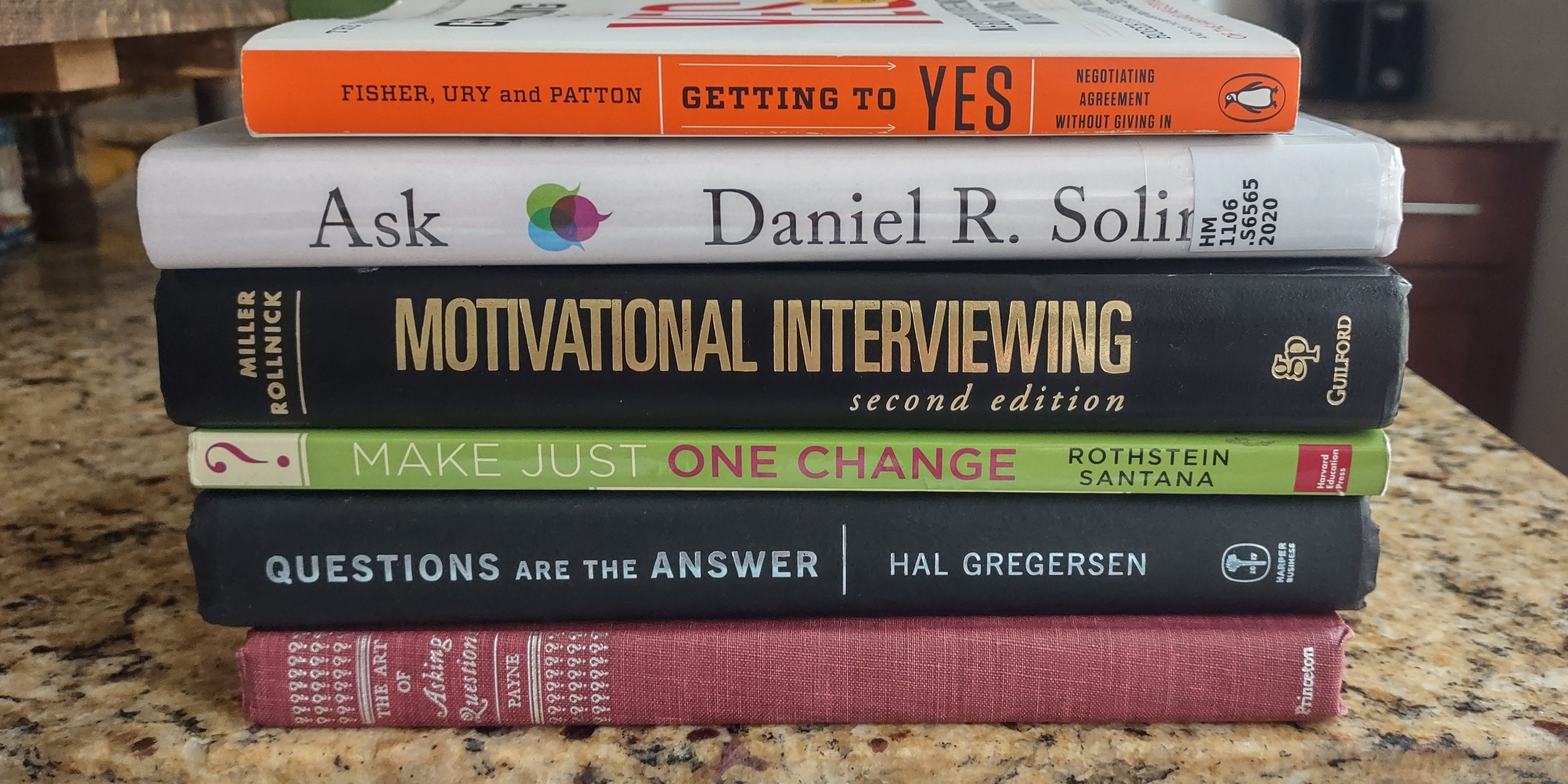Mark Koranda
Thanks for stopping by.
Questions Books
July 20, 2024 - book-review books business communication conversation critical thinking insight interview learning marketing negotiation question questions self-help therapy tldr

We understand questions as an exchange of information, an acknowledgement of unknowns and often, of an important, unresolved problem. Below are a list of books, each taking a different approach to asking better questions and generating better answers.
Take-Aways.
If you:
- want the most change and clearest advice, read “Getting to Yes”.
- want to deeply challenge your assumptions about questions (and therapy) read “Motivational Interviewing”.
- want an introduction to the general benefits, read “Questions are the Answer”.
- don’t want to read, just take my bullet points, below.
“Questions are the Answer” (Business)
Brainstorm as many questions as you can without answering any; some questions are clearly better than others
Recognize that you’re always at least a little wrong
If you have power over smart people, create a culture where they can point out your limitations
“Getting to Yes” (Negotiation)
Connect personally and understand emotions beneath conflicts
Focus on interests (material priorities) rather than positions (people)
Establish independent criteria to evaluate solutions collaboratively
“Ask” (Self-help)
Any conversation is better if you ask more
Learn to mean it, and listen
People will think more of you, and themselves
Asking can change what matters; it results in a better life
“Motivational Interviewing” (Therapy)
Guide, don’t push: Use questions to help others verbalize their own reasons for change
Evoke change talk: Frame questions to elicit self-motivated arguments for change
Develop discrepancy strategically: Highlight gaps between current behavior and goals through questions
Respect autonomy: Frame questions to acknowledge the individual’s freedom to choose
“Make Just One Change” (Education)
Aimed at educators, this book focuses on teaching through questioning. It is not as widely applicable or developed as “Questions are the Answer” and “Getting to Yes”.
Teach by having students generate questions without examples or answers
Conclusion
Effective questioning enhances mutual understanding, fosters personal growth, and creates space for new perspectives. It’s a powerful tool for conflict resolution and building environments of continuous learning. It’s about active listening, deeper understanding, and catalyzing meaningful change. Mastering this skill can transform our personal and professional interactions, leading to more insightful, respectful, and productive exchanges.
Acknowledgements
Claude helped me stay focused, and consolidated many of my observations. It especially helped in translating the insights from Motivational Interviewing.